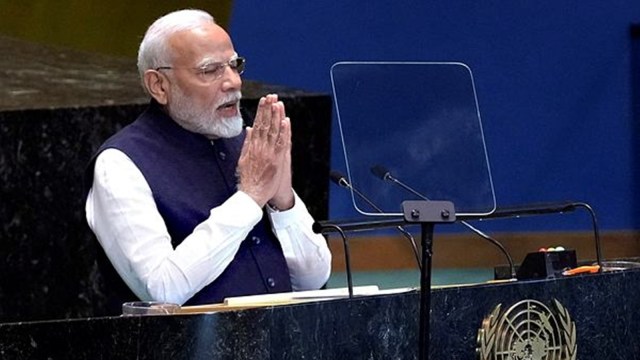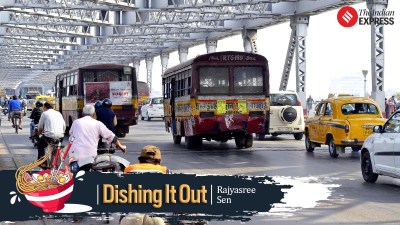Underlinging that the “success of humanity lies in our collective strength, not in the battlefield”, Prime Minister Narendra Modi on Monday said reforms in global institutions are essential for global peace and development.
Addressing the Summit of the Future at the United Nations in New York, Modi flagged “cyber, maritime and space” emerging as “new theatres of conflict”, apart from terrorism. He pitched for “global digital governance” to ensure that national sovereignty and integrity are upheld.

“On behalf of India, the world’s largest democracy, and 1.4 billion Indians, greetings to all of you. In the largest election in human history, held recently in June, the people of India have given me the opportunity to serve them for the third consecutive term, and today, I bring the voice of this 1/6 of humanity to you,” he said.
“When we are discussing the global future, we must accord the highest priority to a human-centric approach,” he said.
“While prioritising sustainable development, we must also ensure human welfare, food and health security. By lifting 250 million people out of poverty in India, we have demonstrated that sustainable development can be successful,” he said. “We are ready to share this experience of our success with the entire Global South,” he said.
“Success of humanity lies in our collective strength, not in the battlefield, and for global peace and development, reforms in global institutions are essential,” he said, alluding to India’s aspirations to become a permanent member of the UN Security Council (UNSC).
“Reform is the key to relevance,” he said, and referred to the inclusion of the African Union in the G20 under India’s presidency last year as an example. “Permanent membership of the G20 to the African Union at the New Delhi summit was an important step in this direction,” he said.
Story continues below this ad
“While, on the one hand, terrorism continues to be a serious threat to global peace and security, on the other hand, areas such as cyber, maritime and space are emerging as new theatres of conflict. On all these issues, I will stress that global action must match global ambition,” he said.
“There is a need for balanced regulation at a global level, for the safe and responsible use of technology, we need global digital governance which ensures that national sovereignty and integrity are upheld. Digital public infrastructure should be a bridge, not a barrier, for global good,” he said.
“India is ready to share its digital public infrastructure with the entire world,” he said.
For India, he said, “One Earth, One family, One future, is a commitment.” “This commitment is also reflected in our initiatives such as One Earth, One Health and One Sun, One World, One Grid. India will continue to work in thought, words and deeds to protect the rights of all humanity and for global prosperity,” he said.
Story continues below this ad
The Summit of the Future (SoTF) is taking place on September 22-23, prior to the United Nations General Assembly (UNGA) in New York. The theme of the Summit is ‘multilateral solutions for a better tomorrow’.
UN Secretary General António Guterres has called the Summit a “once-in-a-generation UN Summit”. It is being projected as an important milestone in the history of the UN as it enters the 80th year of its establishment in 2025.
A Pact for the Future — with two additional documents on Global Digital Compact and Declaration on Future Generations — will be the outcome document of the Summit.









